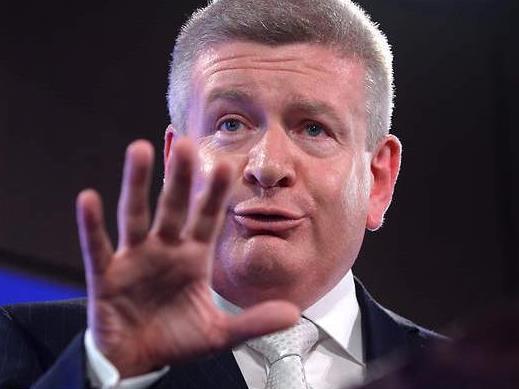The new Minister for Communications and the Arts – Mitch Fifield.
Victoria Senator Mitch Fifield steps into the shoes of two extremely large personalities as he replaces Turnbull who replaced Conroy in the Communications portfolio.
First the easy bit. Senator George Brandis, who caused an enormous furore by rearranging the cash in the arts portfolio in the general direction of medieval patronage, has been relieved of his terrifying power over Australia’s creative communities.
Instead, the entire Ministry has been punted sideways to Communications, a move which many have claimed is a natural fit. It is from the screen point of view since it was responsible to Communications, and the Arts, and ultimately to the income tax system, while dodging the battles between the government and the national broadcasters.
Now, Comms has the lot. Does that suit the arts? At the moment the small to medium practitioners and companies in the arts would rather swim naked with vampire warthogs than stay with Brandis. But the culture of Comms, used to dealing with Murdoch and the NBN, may not feel entirely right for the arts.
Fifield under Turnbull is not Turnbull under Abbott, so it is possible that the government may soften its assault on the ABC, SBS and Screen Australia.
Fifield is known to be a much nicer man than his predecessors, though he may get a quick lesson in hardening up as he confronts the warring parties in commercial television about the reach rule, siphoning, and content regulations. They all agree that they are indigent in hard times and therefore that nasty license fee should go away, thus costing the government a cool $150m/year, or around the total savings which have made life so horrible for the screen sector.
At the age of 48, Mitch Fifield has been in parliament for twelve years, had disability responsibilities in Opposition and became the Assistant Minister for Social Services and the Manager of Government Business in the Senate after Abbott was elected. He has toed the line on all those issues that the Left dislike, from refugees to belting the broadcasters and the school chaplaincy fund
He studied politics at Sydney University. Aside from a stint as a reservist as in the Army Reserve Psychology Corp, he has spent his entire working life in politics, including six years as senior political advisor to then treasurer Peter Costello, from which he was parachuted into Parliament. He lists among his mentors Senator Rod Kemp, Michael Kroger, Tony Smith and Julian Sheezel.
There is a sweet note about his background in his maiden speech: ‘In many respects I do not come to this place with a typically Liberal family background. My aunt and uncle, I am afraid to admit, were political staffers in the Whitlam and Hawke-Keating governments. And my grandfather, Bert Fifield, served for more than 20 years as Federal Secretary and New South Wales President of the Printing and Kindred Industries Union. A left factional convenor from the other side of this chamber even gave the eulogy at his funeral. The turning point in my family’s political views came when Prime Minister Chifley endeavoured to nationalise the private banks. My parents, both bank employees, saw that Labor was inherently opposed to enterprise and choice. They taught me early: do not look at what Labor says, look at what Labor does.’
Fifield was responsible for the roll-out of the feel good but technically tricky National Disability Insurance Scheme. Now he is responsible for the feel awful but technically tricky National Broadband Network.
Paul Fletcher, the ex-Parliamentary Secretary for Communications who stood shoulder to shoulder with Turnbull has been given the wider portfolio he craved. He is now Minister for Territories, Local Government and Major Projects. Which suggests he may continue to have a hand in the NBN.





